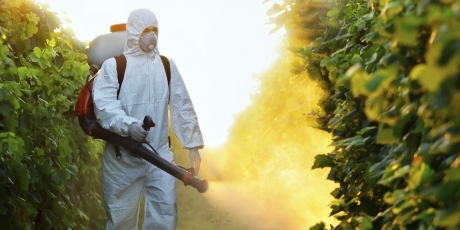- About
- Topics
- Picks
- Audio
- Story
- In-Depth
- Opinion
- News
- Donate
-
Signup for our newsletterOur Editors' Best Picks.Send
Read, Debate: Engage.
| August 29, 2017 | |
|---|---|
| topic: | Child rights |
| tags: | #World Child Cancer, #Ghana, #National Health Insurance Scheme |
| located: | Ghana |
| by: | Kwabena Adu Koranteng |
Currently, World Child Cancer, a British NGO, which operates in Ghana, pays for the total treatment of cancer among children. With the increasing rate of cancer among children, it is unlikely the NGO will continue to fully pay for the cost of treatment, and there is a need for the government to intervene by covering treatment with the National Health Insurance scheme.
Dr Sudha Rao, specialist pediatrician at the Department of Child Health at the Korle-Bu Teaching Hospital, revealed that there are only two Child Cancer treatment centres in Ghana, the Korle Bu Teaching Hospital and the Komfo Anokye Teaching Hospital treatment centre. Both have the capacity to treat only 300 patients a year - leaving over 900 patients to their fates due to financial difficulties.
The Programmes coordinator of World Child Cancer, George Achempim, said that the commonest childhood cancers were lymphoma, leukemia, eye cancer and kidney cancer which collectively formed over 70 per cent of cancers." Breast and cervical cancers are covered with NHIS, but not child cancer".
The estimates for treating a lymphoma is about GHC 1,500 (approx. 400 US Dollars), for a kidney and eye cancer treatment about GHC 4,000 (approx. 910 US Dollars).
“A child cured from cancer has the potential to live for over 50 years", Achempim said. However, up to 20 per cent of child cancer cases are presented at a late stage and the team could them offer only palliative care instead of curative treatment. "Palliative care means - the children get some medication to reduce the pain as we watch these children die slowly because the sickness has reached a stage beyond treatment."
Physicians and health care workers all over Ghana encourage the parents to bring their children to the health centres for an early stage diagnose or treatment, so that a treatment still can be successful. Still, the economic situation of many families can't afford a possible surcharge.
"We continue to educate them about that. Apart from their transportation, the centre takes total care of their treatment and accommodation and sometimes the food they eat. So, we encourage them to bring the children to the center for early treatment”, Achempim stated.
Up to 40 % of patients, who attend the centre for healthcare, abandon treatment mainly as a result of the costs the families bear.
NGOs are at a loss with the government decision
Like many health workers in Ghana, Achempim can not understand why the Ghanaian government does not include the treatment of child cancer in Ghana’s National Health Insurance Scheme.
A senior official of Ghana’s Health Insurance Authority clarified that the decision by government, not to include the child cancer treatment in the National Health Insurance Scheme, is due to the high cost of treatment. The costs could lead to the collapse of the Health Insurance Scheme, they claim - hence the government holds on to the decision.
What a terrible mistake this reasoning could be.
By copying the embed code below, you agree to adhere to our republishing guidelines.
